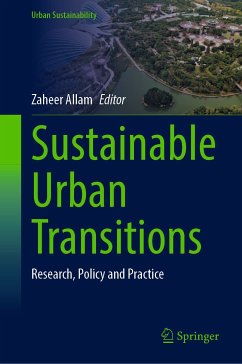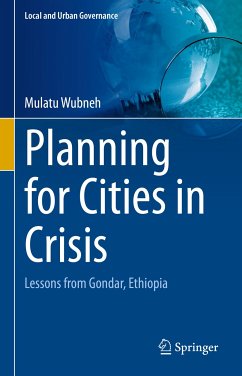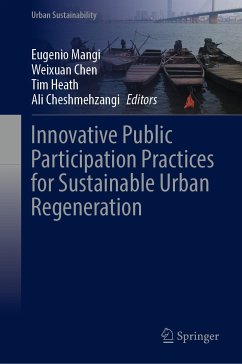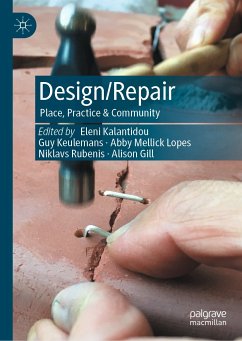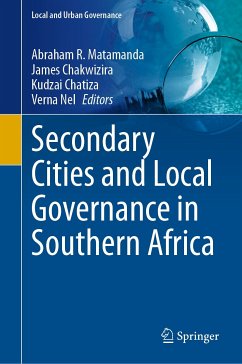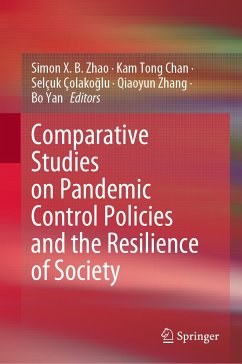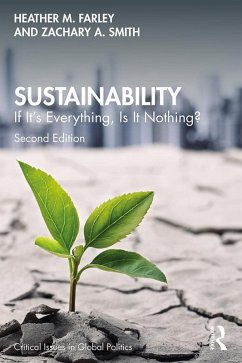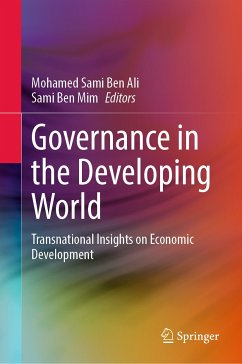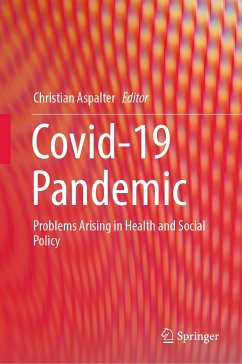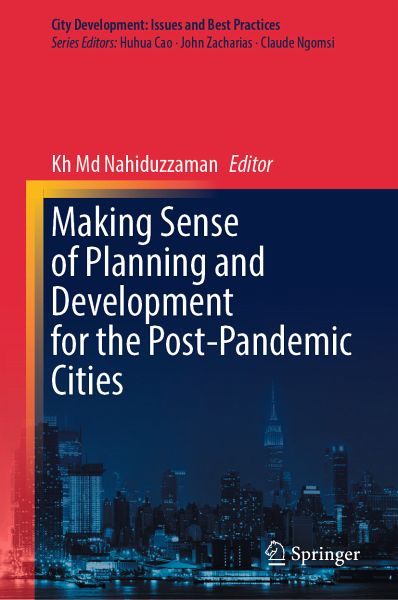
Making Sense of Planning and Development for the Post-Pandemic Cities (eBook, PDF)
Versandkostenfrei!
Sofort per Download lieferbar
120,95 €
inkl. MwSt.
Weitere Ausgaben:

PAYBACK Punkte
60 °P sammeln!
This book holds a distinguished promise of an intellectual understanding and complete account of that shifts in laying out resilient planning, development, and policy landscapes for the cities to come.The approach offers a unique perspective on planning and development in the post-pandemic era, addressing the interconnectedness of diverse spatial, social, cultural, economic, demographic, and political aspects. It provides insights into the transformational behavior of cities and citizens, explores the influence of remote work on the real estate market, emphasizes the need for resilient infrast...
This book holds a distinguished promise of an intellectual understanding and complete account of that shifts in laying out resilient planning, development, and policy landscapes for the cities to come.
The approach offers a unique perspective on planning and development in the post-pandemic era, addressing the interconnectedness of diverse spatial, social, cultural, economic, demographic, and political aspects. It provides insights into the transformational behavior of cities and citizens, explores the influence of remote work on the real estate market, emphasizes the need for resilient infrastructure and adaptive planning, and reinforces the association between health infrastructure and planning for resilient cities.
The book provides a comprehensive account of the shifts and challenges faced in planning and development due to climate change and the COVID-19 pandemic. It explores transformational urban planning, sociocultural, and economic landscapes and addresses topics, including land use changes, transformational real estate market, urban recreational space, adaptive infrastructure, and the need for resilient planning. It offers valuable insights for urban designers, architects, geographers, city planners, policymakers, and pubic officials seeking to enhance city resilience in the post-pandemic era.
The intended readership of the book includes urban designers, architects, city planners, geographers, policy makers, and public officials. It caters to individuals interested in gaining a critical understanding of the interconnectedness between various spatial, social, cultural, economic, demographic, and political aspects. The content level is academic, offering scholarly insights and a unique post-pandemic perspective on enhancing city resilience.
The approach offers a unique perspective on planning and development in the post-pandemic era, addressing the interconnectedness of diverse spatial, social, cultural, economic, demographic, and political aspects. It provides insights into the transformational behavior of cities and citizens, explores the influence of remote work on the real estate market, emphasizes the need for resilient infrastructure and adaptive planning, and reinforces the association between health infrastructure and planning for resilient cities.
The book provides a comprehensive account of the shifts and challenges faced in planning and development due to climate change and the COVID-19 pandemic. It explores transformational urban planning, sociocultural, and economic landscapes and addresses topics, including land use changes, transformational real estate market, urban recreational space, adaptive infrastructure, and the need for resilient planning. It offers valuable insights for urban designers, architects, geographers, city planners, policymakers, and pubic officials seeking to enhance city resilience in the post-pandemic era.
The intended readership of the book includes urban designers, architects, city planners, geographers, policy makers, and public officials. It caters to individuals interested in gaining a critical understanding of the interconnectedness between various spatial, social, cultural, economic, demographic, and political aspects. The content level is academic, offering scholarly insights and a unique post-pandemic perspective on enhancing city resilience.
Dieser Download kann aus rechtlichen Gründen nur mit Rechnungsadresse in A, B, BG, CY, CZ, D, DK, EW, E, FIN, F, GR, HR, H, IRL, I, LT, L, LR, M, NL, PL, P, R, S, SLO, SK ausgeliefert werden.



